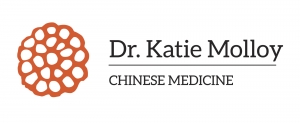Did you know that flushed cheeks in the afternoon might be a sign of Yin deficiency in your body? Ever notice a difference in your skin the day after drinking wine or eating cheese? That monthly break out on your chin? It might be an indication that your hormone levels need checking.
In the Chinese medicine clinic, we spend a great deal of time focusing on details, piecing them together to understand the fabric of each person’s body as a whole. When it comes to skin health, we assess far more than just whether or not a patient has a skin condition. We learn a huge amount about the body’s internal processes from what’s reflected in the skin’s colour, texture, temperature and specific locations of blemishes or moles.
In Taoist philosophy, autumn belongs to the Metal element and the Lung system, which opens to the skin, nose and throat. Because it is exposed directly to the external environment through the respiratory system, the lung is seen to be fragile and delicate, easily affected by change. The lung’s chief functions are to govern the distribution of vital nutrients, particularly fluids, to where they are needed in the body; and form what is known as Wei Qi or defensive energy on the skin. This protects us from harmful pathogens and plays a pivotal role in immunity. The skin in the physical sense, is one of our first lines of defense against potential bacterial, viral, fungal infections and other microbes. If the lung system is faltering, skin may be dry in areas, oily in others and we may be susceptible to allergies or readily contract infections.
The lung’s partner organ, also attributed to the Metal element, is the large intestine. Here enters the other major role of the skin – removal of waste and toxins. As our largest organ, the skin is an effective vessel for the body to remove waste. This yin-yang partnership of lung and large intestine explains the connection between digestive health, particularly waste removal, and the health of the skin. Many patients being treated for chronic constipation find that as their bowel motions become more frequent and consistent, their skin begins to clear up. A clean diet is ultra important to the health of our skin. The more rubbish we feed ourselves the more the skin becomes a facility for waste removal.
Just as it forms a barrier between our insides and the outside world, the skin is a reflective surface for what’s happening inside the body. A skilled practitioner can examine the skin on the face for example and ascertain the location and type of imbalances which may be occurring inside the body. Emotional state, stress, hormonal imbalances all show themselves on the skin surface. The chin and around the mouth reflect digestive health, directly under the eyes gives an indication of strength of the Kidney Qi, and the area beneath this closer to the bony part of the eye socket corresponds to the large intestine – which in turn gives us information about the sinuses and how well they’re draining. A large crease between the eyebrows can indicate stuck energy through the Liver system, which is easily aggravated by stress and anger. Smile lines are evidence of a life well lived and are no cause for concern.
Chinese medicine and acupuncture can help correct skin conditions including acne, eczema, psoriasis, rosacea , shingles, urticaria (hives) and more.
5 tips for clear, glowing skin
1. Hydration
Autumn is a season of dryness, which affects the Lung system directly. You may find your skin becomes dull or flaky at this time of year. Make sure to drink plenty of water, in sips throughout the day (don’t wait until you feel thirsty to drink) and hydrate from the outside in with a moisturiser such as shea butter or vitamin E cream. Though applying moisture to the skin surface will provide some relief, it’s more effective to hydrate internally. Playing catch up requires more time and effort than prevention.
2. Sleep
Especially important for cell repair and healing. Try for 7-8 hours per night. Sleep is essential to replenishing yin and fluid – without this our bodies can easily heat up and we become more susceptible to inflammatory conditions.
3. Fresh food
Nourish yourself with plenty of fruits and vegetables, especially celery and dark leafy greens which are helpful in purifying and detoxification. A colourful plate is a healthy plate – aim to include some red, orange, yellow and green vegetables each day to ensure you’re receiving a broad nutrient profile in vitamins and minerals. Avoid alcohol and greasy or spicy foods, especially if you’re prone to redness and itching. Refined sugar and processed foods are inflammatory and should be avoided.
4. Stress reduction
Increased stress reduces our ability to repair and is reflected directly on the skin.
5. Keep it simple
Cleansing dirt and make up off the face is important to allow it to heal but be wary of overzealous cleansing and harsh chemicals stripping the skin of natural oils. Coconut oil is a natural and broad spectrum antibacterial, antiviral, antifungal and antimicrobial and great for soothing itching, inflammation and dryness. Jojoba oil on a cotton pad is a wonderful make-up remover as it will dissolve even oil-based make-ups but is soothing, nourishing and anti-inflammatory to leave on as a moisturiser overnight.







